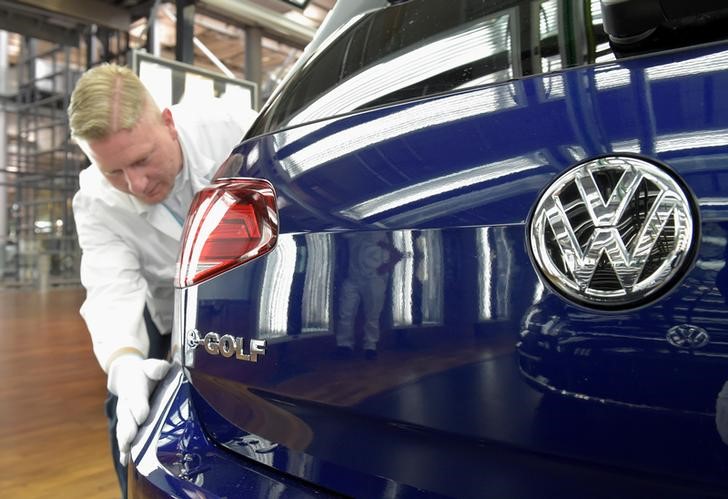By Geoffrey Smith
Investing.com -- Europe’s economy is grinding to a halt because of the coronavirus, and there’s little telling when it will start up again.
Volkswagen (DE:VOWG), the world’s biggest auto maker and the biggest private-sector employer across the continent, said it will suspend production this week at plants in Italy, Portugal, Slovakia and Spain and will shut down the rest of its factories across Europe in due course.
The shutdown is initially planned to run for two weeks. The measures don’t come as much of a surprise, given that Germany, like other countries in Europe, is imposing increasingly severe restrictions on all walks of daily life.
The move will be felt along the length of one of the world’s most extensive supply chains, a stark illustration of how the virus is freezing economic activity.
“2020 is a very difficult year,” chief executive Herbert Diess told a press conference as he unveiled the company’s annual results. “The corona pandemic presents us with unknown operational and financial challenges. At the same time, there are concerns about sustained economic impacts.”
VW – like many others – isn’t giving guidance for 2020, citing the extreme lack of visibility created by Covid-19.
VW and the other big-name German car brands can typically rely on extensive support from the German state when they run into trouble. It’s usually their suppliers that end up taking most of the strain from temporary collapsed in demand.
VW’s preferred stock was down a relatively modest 3.5% by 5:50 AM ET (0950 GMT), while those of its biggest suppliers, such as were all down by more. Schaeffler stock fell 9.9%, Hella stock fell by 5.7% and Continental stock fell by 3.6%, all anticipating similar shutdowns by Daimler and BMW. The benchmark Dax index was down 1.7%, while the Stoxx 600 was down 2.0%, spooked by short-selling bans in France, Spain and Italy.
VW preferred stock is now down 47% for the year to date and trades at a trailing price-earnings ratio of 3.65. However, such traditional value metrics have temporarily lost any meaning as investors refuse to take on risk at any price.
The shame for VW is that it entered 2020 in relatively good shape, having made decent progress in ramping up output of electric vehicles, meeting new emissions regulations and avoided a hard Brexit. Revenue rose 4.5% to 88.4 billion euros ($97 billion) while underlying operating profit rose 19% to 3.8 billion euros.
Nice numbers, but – for now at least – utterly irrelevant. The only thing matters for the foreseeable future is how long those billions of euros of capital invested in VW’s fixed assets are shut, and to what extent the government, lenders and the European Central Bank will share the burden of keeping its workforce idle. And that is a question that applies, mutatis mutandis, across the whole of the European economy.
